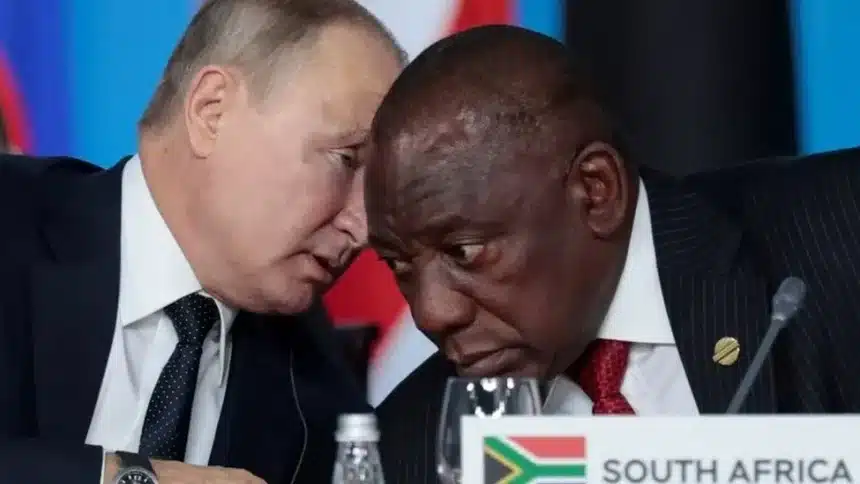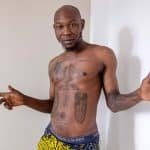According to a deputy minister, South Africa seeks to modify its laws so that it can determine whether or not to arrest a leader wanted by the International Criminal Court (ICC).
Obed Bapela’s words come amid widespread debate about whether South Africa will honor its invitation to Russian President Vladimir Putin to visit in August.
The ICC has issued an arrest warrant for Mr Putin in connection with the Ukraine conflict.
South Africa had previously invited him to a Brics leaders’ summit.
Russia has not stated whether or not Mr. Putin intends to attend the conference.
Meanwhile, Pretoria has granted Russian personnel attending diplomatic immunity, which its foreign affairs department said as usual procedure.
Brics is meant to develop ties among the countries that comprise it: Brazil, Russia, India, China, and South Africa.
“In June we’ll be submitting the law in parliament,” Obed Bapela, a deputy minister in the South African presidency, told the BBC World Service’s Newshour programme.
Through the law, South Africa “will give itself exemptions of who to arrest and who not to arrest,” Mr Bapela said.
As a member of the ICC, South Africa is required by law to arrest Mr Putin if he reaches on its shores.
South Africa, on the other hand, has failed to denounce Russia’s invasion of Ukraine, insisting on remaining neutral.
The International Criminal Court issued a warrant for Mr Putin in March, accusing him of war crimes, which Moscow has denied.
The Democratic Alliance (DA), South Africa’s major opposition party, has filed a court appeal to compel the authorities to arrest Mr Putin if he arrives in August.
Mr Bapela stated that South Africa was also requesting a waiver from the ICC.
This is a reference to Article 98 of the Rome Statute, which established the court in 2002.
While article 27 states that no one is exempt from prosecution by the ICC, article 98 appears to imply that the ICC could not request that South Africa arrest Russian President Vladimir Putin unless Russia agreed to renounce Mr Putin’s immunity from prosecution.
The deputy minister also chastised the ICC for its “double standards,” claiming that the late Nelson Mandela, South Africa’s first democratically elected president, would have been dissatisfied with the war crimes tribunal.
“We never thought that the ICC that we have today will be what it is. They never indicted Tony Blair, they never indicted [George W] Bush for their killings of Iraq people,” he said, referring to the former UK and US leaders and their invasion of Iraq in 2003.
“Mandela would have said [that] the inequality, the inconsistency by the ICC, is a problem.”
- Squeezing the Poor: The Silent Struggle of Nigeria’s Starving Souls
- Plates of Despair: Nigerian Women Battle Against Deepening Hunger
- Shadows of Hunger: Struggles of Nigeria’s Displaced Children Begging to Eat, Survive on the Streets – Part 2
- Shadows of Hunger: Struggles of Nigeria’s Displaced Children Begging to Eat, Survive on the Streets – Part 1
- ‘This Is Messing Up My Performance’ —Angry Rema Walks Off Stage Over Poor Sound In Atlanta
Mr Bapela also cited earlier examples of international justice exemptions, such as the UK’s decision not to extradite General Augusto Pinochet in 1998.
The former Chilean dictator was arrested in London at the request of a Spanish judge trying to charge him with human rights violations during his 17-year rule, but he was released after 16 months on the recommendation of medical doctors who claimed he was unfit to face trial. He died in his hometown in 2006.






